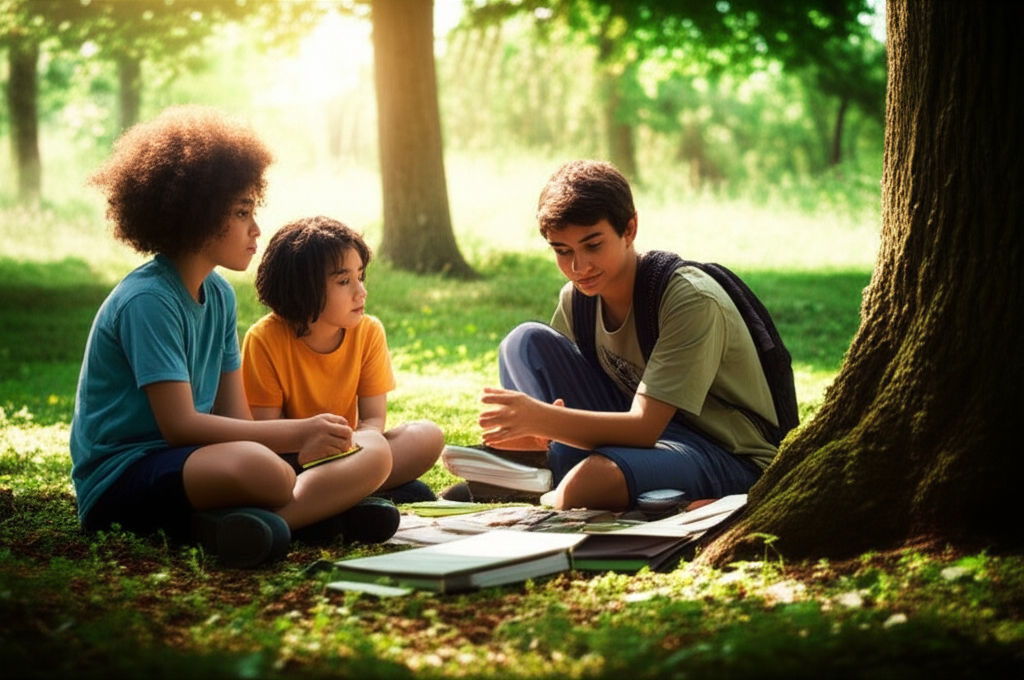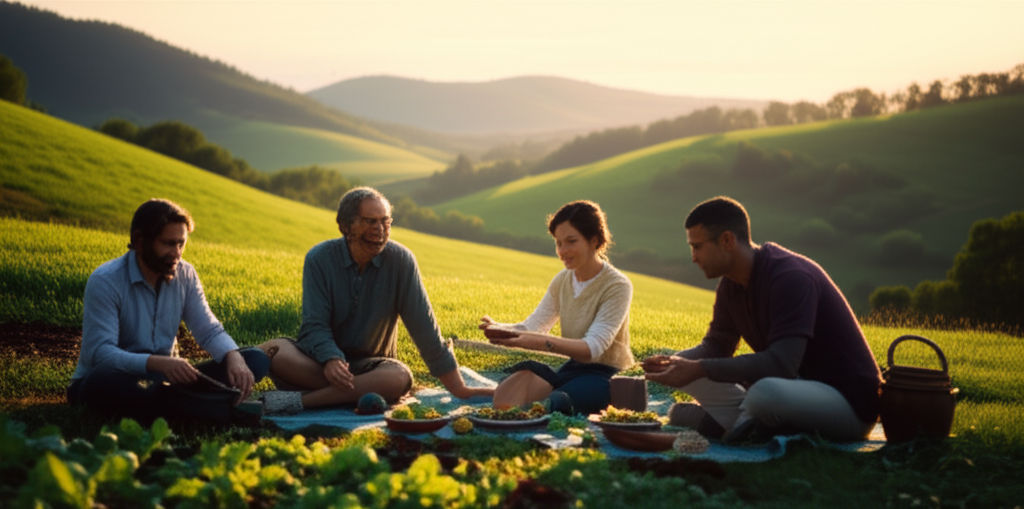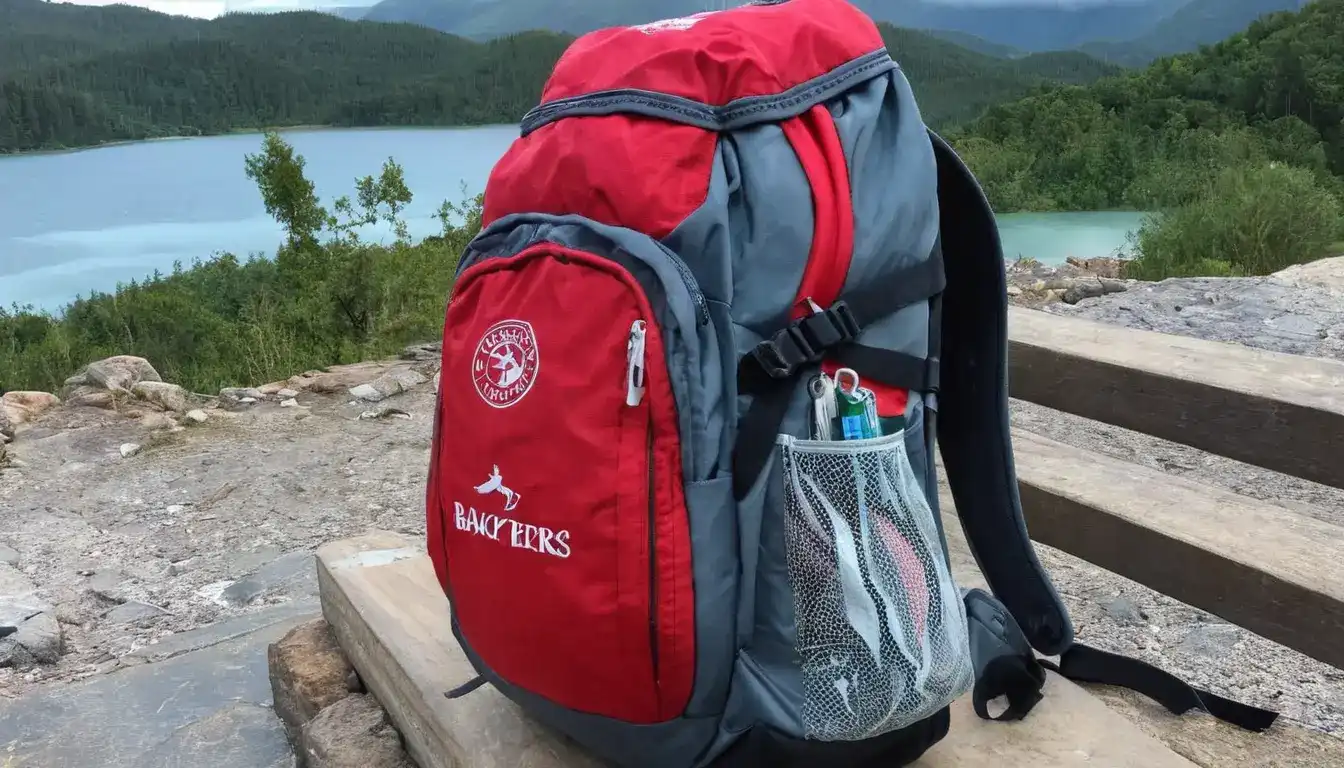Outdoor Learning: Connect with Nature in Future
Emily Willis

Photo: Outdoor Learning: Connect with Nature in Future
Outdoor Learning: Connecting with Nature in the Future
In a world increasingly dominated by screens and indoor activities, a quiet revolution is taking foot: outdoor learning. It's more than just taking a classroom outside; it's a philosophy that recognizes the profound and lasting benefits of connecting with nature for people of all ages. As we look to the future, integrating outdoor learning and fostering a deep connection with the natural world isn't just a nice idea—it's an essential pathway to holistic well-being, enhanced learning, and a sustainable planet.
Imagine a future where green spaces are seamlessly woven into our daily routines, where learning isn't confined to four walls, and where the rustle of leaves and the chirping of birds are as familiar as the hum of a computer. This vision is not only achievable but crucial for nurturing resilient, creative, and environmentally conscious individuals.
Why Outdoor Learning Matters More Than Ever: The Present Need
Our modern lifestyles, while offering many conveniences, have often distanced us from the natural world. This disconnect, sometimes referred to as "nature deficit disorder," can impact our physical and mental health. This is where outdoor learning steps in, offering a powerful antidote.
Beyond the Classroom Walls: A New Perspective on Learning
Outdoor learning is an evidence-based approach that extends education beyond traditional indoor settings, utilizing our natural environment as a dynamic extension of the classroom. It's an experiential method that transforms real-world experiences into valuable knowledge, skills, behaviors, and attitudes. It can happen anywhere from a schoolyard to a local park or a vast forest. This shift in environment encourages students to engage with lessons in fresh, exciting ways, making learning more practical and memorable.
The Tangible Benefits: Mind, Body, and Soul
Research consistently highlights a wide array of benefits associated with spending time and learning in nature for both children and adults.
- Improved Well-being and Mental Health: Spending time outdoors has been shown to significantly reduce stress, anxiety, and symptoms of depression. It can improve mood, emotional regulation, and overall mental well-being. The calming effects of nature help individuals better regulate their emotions.
- Enhanced Cognitive Development and Problem-Solving: Activities in natural settings foster critical thinking, problem-solving, and creativity. Whether it's observing insects, building with natural materials, or navigating uneven terrain, outdoor environments provide opportunities for hands-on learning that strengthens cognitive abilities. Studies have even shown improved academic performance and focus in schools that incorporate nature.
- Physical Health Boost: Outdoor learning naturally promotes physical activity, which is vital in an age of increased sedentary lifestyles. Running, climbing, balancing, and exploring uneven terrain help develop gross motor skills, coordination, and strength, contributing to overall physical health. Regular outdoor activity can also help combat childhood obesity.
- Fostering Creativity and Curiosity: The open-ended nature of outdoor environments stimulates imagination and encourages creative play. Children and adults alike are encouraged to explore, discover, and experiment, leading to a deeper sense of wonder and curiosity about the world around them.
- Building Resilience and Confidence: Outdoor settings often present unpredictable challenges, from changing weather to navigating new terrains. These experiences build resilience—the ability to adapt and bounce back from setbacks—and foster a sense of resourcefulness and confidence as individuals accomplish tasks they might have thought impossible.
- Developing Social Skills: Group activities in outdoor environments, such as building shelters or conducting nature scavenger hunts, promote teamwork, communication, and cooperation. These shared experiences strengthen social bonds and foster empathy among participants.
Embracing Nature in the Future of Learning: The Future Vision
The growing recognition of these benefits is driving a shift towards integrating outdoor learning more deeply into the fabric of education and daily life.
Outdoor Learning: A Core Pillar of Future Education
Many educators and institutions now view outdoor classrooms as a progressive and essential approach to learning. This isn't just a fleeting trend; it's a fundamental change in educational paradigms, moving beyond traditional indoor settings to leverage natural spaces for diverse learning opportunities. UNESCO has even set a target to make environmental education a core curriculum component in all countries by 2025, emphasizing the need for everyone to acquire knowledge, skills, and values for positive environmental change.
Bridging the Digital Divide with Green Spaces
In an increasingly digital world, outdoor learning offers a vital balance. While technology has its place, constant screen time can lead to mental fatigue and a disconnect from the physical world. Outdoor learning provides a much-needed "digital detox," allowing individuals to refresh their minds and senses by engaging with the tangible, multi-sensory experiences of nature. This balance is crucial for maintaining mental well-being and enhancing focus in both digital and natural environments.
Cultivating Environmental Stewardship for Tomorrow
A key aspect of future outdoor learning is its role in fostering environmental stewardship. When individuals, especially young people, engage directly with natural landscapes, they develop a profound sense of responsibility and connection to the planet. Lessons focused on sustainability, ecology, and conservation become more impactful when experienced firsthand, inspiring action and cultivating a generation of environmentally conscious citizens ready to tackle global challenges like climate change and biodiversity loss.
Practical Pathways to Connect with Nature: Actionable Steps
Integrating outdoor learning into our lives, whether for ourselves or for others, doesn't require grand expeditions. It can start with small, intentional steps.
For Parents and Families: Bringing Learning Outdoors
- Nature Scavenger Hunts: Create a list of natural items to find (e.g., a smooth stone, a crinkly leaf, something red). This simple activity encourages observation and exploration in a local park or backyard.
- Backyard Exploration: Transform your backyard into a learning laboratory. Plant a small garden, observe insects, or simply spend time noticing the changes in seasons.
- Community Gardens: Participate in a local community garden. This offers hands-on learning about food systems, teamwork, and connecting with neighbors.
- Mindful Nature Walks: Encourage "forest bathing" or Shinrin-yoku, a Japanese practice of simply being present and immersing your senses in the forest atmosphere. This isn't about hiking or jogging, but rather a slow, sensory experience that can reduce stress hormones, lower blood pressure, and boost immune function. Even short periods, like 15-60 minutes per week, can mollify stress, depression, anxiety, and anger.
For Educators and Schools: Designing Outdoor Curricula
- Dedicated Outdoor Classrooms: Designate specific outdoor spaces for learning. This could be a garden, a shaded area with seating, or even a "forest school" concept. Planning and setting up outdoor spaces in advance can save time and ensure resources are ready.
- Integrating Nature into Subjects: Weave nature into various subjects. For instance, measure tree heights in math, study plant life in science, or use natural elements for art projects. Taking lessons outdoors helps students see the relevance of their education in everyday life.
- Professional Development for Teachers: Provide training and support for educators to build their confidence and knowledge in outdoor learning pedagogical approaches. Starting small, perhaps one outdoor lesson per term, can be a realistic and effective way to begin.
- Be Flexible and Prepared: Outdoor learning means embracing the unexpected. Be ready to adapt lessons to weather conditions or spontaneous learning opportunities that arise from the natural environment. Having an "outdoor box" with essential items like chalk, string, and magnifying glasses can be incredibly helpful.
For Adults and Lifelong Learners: Reclaiming Your Nature Connection
- Outdoor Hobbies: Engage in hobbies that take you outdoors, such as hiking, birdwatching, gardening, or photography. These activities offer a structured way to connect with nature and develop new skills.
- Volunteer in Nature: Contribute to local conservation efforts, park clean-ups, or community gardening projects. Volunteering combines purpose with outdoor time.
- Wilderness Expeditions: For those seeking deeper immersion, programs like those offered by Outward Bound or NOLS provide immersive wilderness experiences that build practical skills, leadership, and resilience. These can be transformative experiences for personal and professional growth.
- Mindful Movement: Incorporate practices like outdoor yoga or meditation, allowing the natural setting to enhance your sense of calm and presence.
Overcoming Challenges and Looking Ahead
While the benefits are clear, implementing widespread outdoor learning isn't without its challenges. Common barriers include concerns about health and safety, lack of teacher confidence, curriculum requirements, and limited resources or time.
However, solutions are emerging. Schools can explore grants, build community partnerships, and be resourceful with repurposed materials to address resource limitations. Addressing safety concerns involves thorough risk assessments, appropriate supervision, and clear boundaries. Furthermore, fostering a culture where outdoor teaching is seen as "real" teaching and providing adequate training can empower educators.
The future of outdoor learning will also likely see an increased incorporation of technology, not as a replacement for direct experience, but as an enhancement. This could involve using apps for identifying plants, virtual reality for exploring inaccessible environments, or data collection tools for environmental studies. This blend of the natural and digital will create even richer learning experiences.
Conclusion: Nurturing a Nature-Connected Future
Outdoor learning is more than
Latest ✨
View AllIn today's digital age, businesses face numerous cybersecurity threats and need to protect sensitive data. To choose the right cybersecurity solution, businesses should understand their specific needs, assess potential threats, evaluate different solutions, consider ease of use and integration, evaluate the provider's reputation and support, conduct a cost-benefit analysis, and implement and monitor the solution effectively.
Emily Willis
Navigate economic shifts. Learn what a recession is, spot key indicators, and get actionable strategies for personal finance and business resilience.
Emily Willis
AI is revolutionizing education! Unlock personalized learning, empower teachers, and create a truly accessible future for every student.
Emily Willis
Equip students with resilience! This vital life skill helps them thrive amidst challenges, adapt to change, and ensure future success & well-being.
Emily Willis
Business
View All
June 9, 2025
Maximize Your CRM ToolsUnlock your CRM's full potential! Go beyond basics to transform it into a strategic asset for unparalleled business success and customer loyalty.
Emily Willis

June 9, 2025
Risk Management: Protect Your BusinessUnlock business resilience! Master risk management to protect assets, enhance decision-making, minimize losses, and ensure sustainable growth in an uncertain wo...
Emily Willis

July 3, 2025
assurance auto pas cher pour résiliéAssurance auto pas chère pour résilié : astuces, solutions concrètes et comparateurs pour retrouver une couverture économique après résiliation.
Emily Willis
Economy
View AllUnlock comfort & convenience with BA premium perks! Explore Executive Club benefits, premium cabins, and more for an extraordinary travel experience.
Read MoreThrive in today's competitive markets. Discover strategies to adapt to globalization, digitalization, and evolving consumer demands for business growth.
Read MoreGDP misses true well-being. Explore why a holistic approach beyond economic output is vital for a flourishing, sustainable, and equitable future.
Read MoreEntertainment
View All
August 5, 2024
Music Universal Language: Connecting and Inspiring Across CulturesMusic has the power to transcend language barriers and connect people on a deep emotional level. It serves as a bridge between cultures, fostering understanding and appreciation for diversity. The universality of rhythm and melody creates a sense of unity, while the diversity of musical styles allows for exploration and creativity.
Emily Willis

July 5, 2025
On Par Good TimesTired of fleeting happiness? Learn to cultivate 'on par good times' for consistent fulfillment & balanced well-being. Get actionable strategies now!
Emily Willis

August 4, 2024
Virtual Music Concerts: The Future of Live Performance?The music industry has seen significant changes in recent years, with virtual music concerts becoming a popular trend, especially due to the impact of the COVID-19 pandemic. Technological advancements have made virtual concerts more accessible and cost-effective, while also reducing the environmental impact of live events. However, challenges such as technical issues and the lack of physical presence remain. The future of virtual concerts may involve hybrid models that combine virtual and physical experiences, as well as continued technological innovation to enhance the quality of virtual performances. Building a sense of community and engagement will also be crucial for the success of virtual concerts moving forward.
Emily Willis
Health
View AllDiscover fulfilling healthcare careers at Dignity Health. Explore diverse jobs, compassionate care, and a supportive environment to make a real impact.
Emily Willis
cultivating healthy lifestyle habits to improve overall well-being. It focuses on three pillars of well-being: nutrition, exercise, and sleep. It provides tips on how to incorporate these practices into daily routines, such as eating a variety of foods, finding enjoyable forms of exercise, and establishing a consistent sleep schedule.
Emily Willis
Regular physical activity is crucial for maintaining long-term health and well-being. It has numerous benefits, including improving cardiovascular health, aiding in weight management, enhancing mental health, strengthening bones, boosting immune function, and promoting longevity.
Emily Willis
Trending 🔥
View All
1
2
3
4
5
6
7
8
9
10
Lifestyle




Sports
View AllAugust 4, 2024
Benefits of Cross Training for Athletes: Improves Performance and Prevents Injuries
Read MoreAugust 5, 2024
Inclusive Playing Field: Creating a Welcoming and Accessible Sports Environment
Read MoreTechnology
View All
August 5, 2024
Ethical Challenges in AI Development and Use
Artificial Intelligence (AI) has evolved rapidly from science fiction to reality, offering immense potential but also presenting significant ethical challenges.

August 5, 2024
The Impact of AI on the Future of Work and Education
AI is rapidly advancing and reshaping industries, economies, and societies, especially in the areas of employment and education. In the workplace, AI is changing roles through automation and creating new job opportunities. The future of work will most likely involve collaboration between humans and AI, requiring workers to develop new skills and engage in lifelong learning.

August 5, 2024
How AI is Used to Solve Problems in Various Industries
Artificial Intelligence (AI) is reshaping industries across the globe, from healthcare to finance, by solving complex problems, increasing efficiency, and driving innovation. In healthcare, AI is saving lives through drug discovery, disease diagnosis, personalized medicine, and virtual health assistants.

August 5, 2024
AI Applications that are Changing the World Around Us
Artificial Intelligence (AI) is no longer a concept from science fiction, but a reality that is reshaping the world around us. From virtual assistants to self-driving cars, AI is making significant impacts in various industries such as healthcare, education, transportation, and agriculture. AI is also being used to address environmental challenges and enhance customer experiences.

















